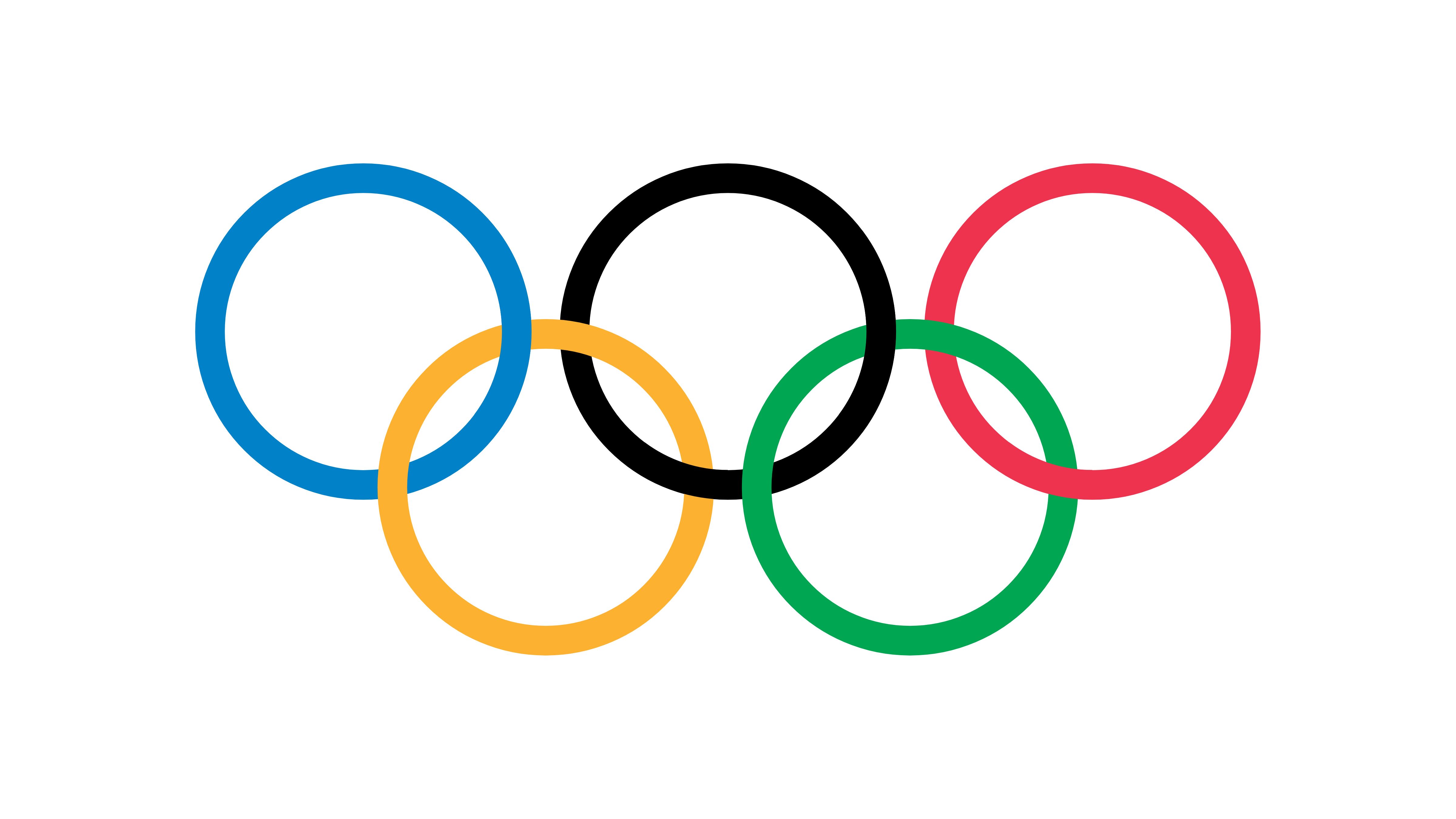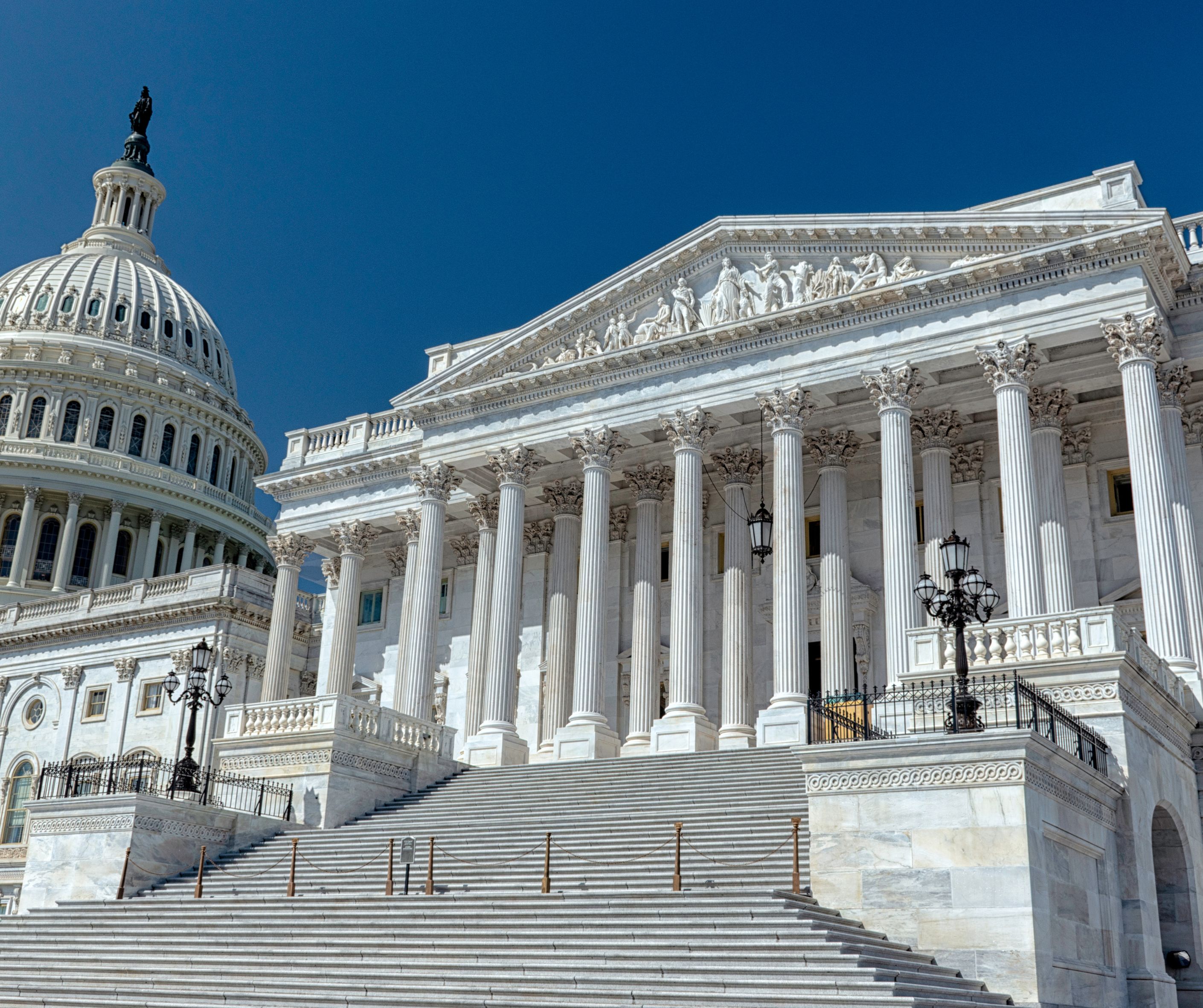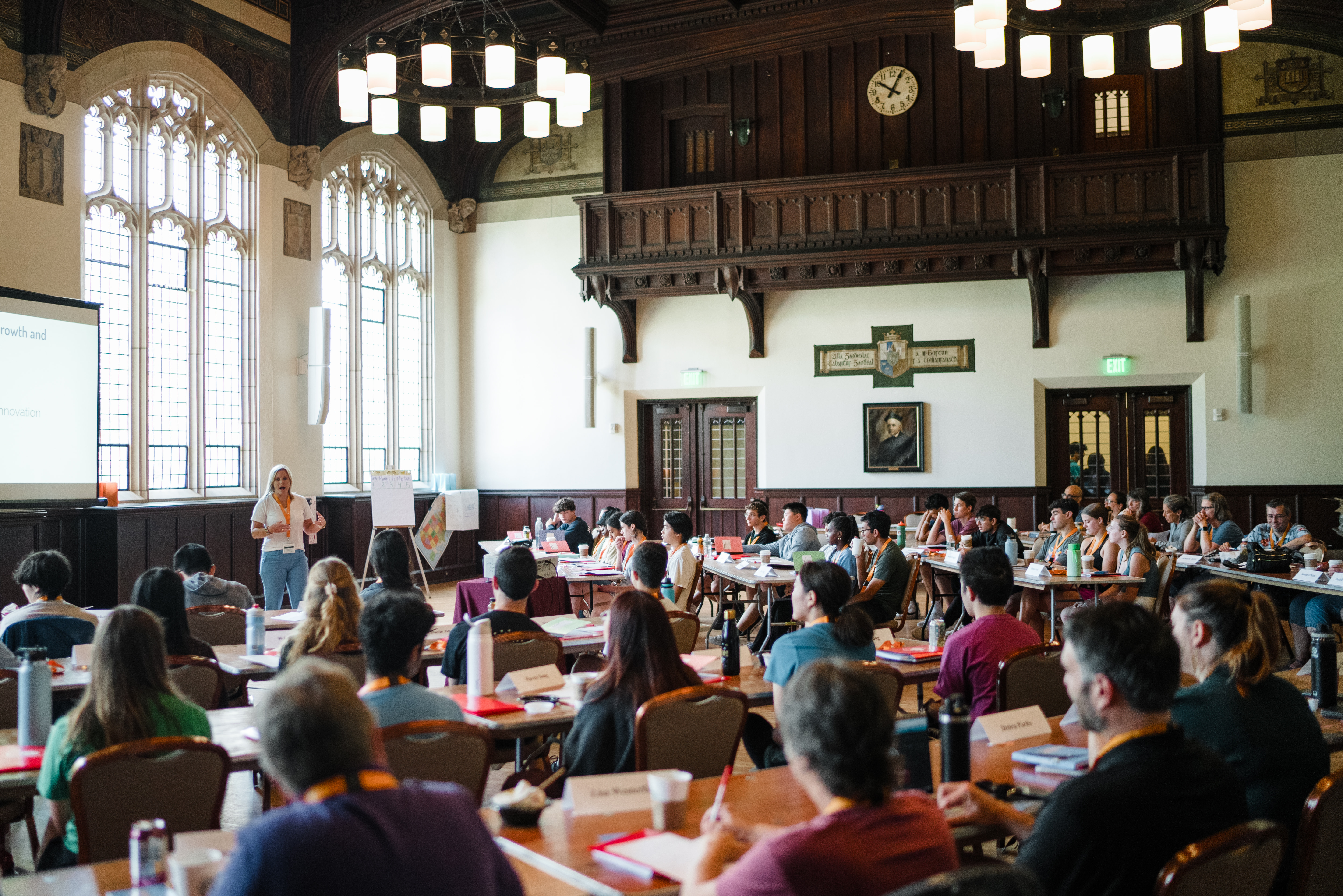EFIAH Glossary
- >
- Teachers
- >
- Teacher Resources
- >
- Lesson Plans
- >
- Economic Forces In American History
- >
- EFIAH Glossary
Absolute Advantage: The ability to produce more units of a good or service than some other producer, using the same quantity of resources.
Business Cycles: The fluctuations in business activity throughout the economy with alternating periods of expansion and contraction; usually measured by real gross domestic product (GDP).
Cartels: A formal agreement between businesses in the same industry, to get market control, raise the market price, and otherwise act like a monopoly.
Central Bank: A banker’s bank, usually an official institution that also serves as a country’s treasury’s bank. A country’s central bank regulates the money supply and oversees the commercial banks. The Federal Reserve is the central bank in the United States.
Collective goods: Goods or services that benefit every individual belonging to some group, and where it is hard to exclude any individual from that benefit. For example, an individual cannot be excluded from the benefit of national defense, so there is a motive for individuals to free ride on the supply of this service by others.
Commercial Bank: A bank who primarily receives demand deposits and makes short-term loans.
Comparative Advantage: The ability to produce a good or service at a lower opportunity cost than some other producer.
Complementary Goods/Services: Goods and/or services that are typically used together, such as cereal and milk or golf clubs and golf lessons.
Cost/Benefit Analysis: The process of examining the advantages (benefits) and disadvantages (costs) of each available alternative in arriving at a decision.
Deflation: A sustained decrease in the average price level of all the goods and services in an economy.
Demand: The quantity of a good or service that buyers are willing and able to buy at all possible prices during a period of time.
Economic Growth: An increase in real output as measured by real GDP or per capita real GDP.
Economies of Scale: The decrease in the per-unit cost of production of a good or service that results from increasing the volume or scale of production.
Embargo: An official ban by a government on certain or all trade with a foreign nation.
Expected Benefits v. Expected Costs: Individuals make decisions based on what they expect the costs and benefits of that decision will be. This process of examining the advantages (benefits) and disadvantages (costs) of each available alternative in arriving at a decision is called cost/benefit analysis:
Externality: A benefit or cost that affects someone who is not directly involved in the production or consumption of a good or service. (Ex: pollution, vaccines)
Exchange Rate: The price of one nation’s currency in terms of another nation’s currency.
Factor Endowments: The theory that differences in factor endowments among countries result in different opportunity costs. Countries generally have comparative advantages in the production of commodities that are intensive in the use of the factors of production with which their endowments are relatively abundant.
Fiat Money: Paper money that is backed only by the issuing government’s decree that it is acceptable as legal tender currency. Its value stems from public confidence, rather than convertible into gold or other hard currency.
Final Good: Goods that are consumed and not used in production of another good
Financial Intermediation: The process by which banks, credit unions, pension funds, insurance companies, mutual fund companies and other financial institutions bring together savers and borrowers and buyers and sellers of stocks and bonds.
Financial Crisis: The term financial crisis is applied broadly to a variety of situations in which some financial institutions or assets suddenly lose a large part of their value. (Ex: stock market crashes, bursting of financial bubbles, currency crises) Historically, many financial crises were associated with banking panics, and recessions often coincided with the panics.
Fixed Exchange Rates: Exchange rates that are not allowed to fluctuate in the open market. Instead a government fixes or sets the rate of exchange for their currency in terms of another country’s currency.
Floating Exchange Rates: Exchange rates that are allowed to fluctuate in the open market in response to changes in supply and demand.
Fractional Reserve Banking: Refers to the process by which banks hold only a fraction of their deposits available for withdrawal by depositors. The rest may be lent out, thus “creating money.”
Gains from Trade: The increased output resulting from trade; with trade, each individual, region or nation is able to concentrate on producing goods and services that it produces efficiently, while trading to obtain goods and services that it does not produce.
Globalization: The tendency of investment funds and businesses to move beyond domestic and national markets to other markets around the globe, thereby increasing the interconnectedness of different markets.
Gross Domestic Product (GDP): The value of all final goods and services produced in a given economy in a given year. GDP(Y) = Consumption(C) + Investment(I) + Government Spending (G) + (Exports(X) – Imports(Im))
Incentives: Any reward or benefit, such as money, advantage or good feeling that motivates people to do something.
Inflation: A rise in the general or average price level of all the goods and services produced in an economy. Inflation occurs when the money supply grows faster rate than output.
Infant-industry argument: A case made by developing sectors of the economy that their industries need protection against international competition while they establish themselves. In response to such pleas, the government may enact a tariff, quota, or subsidy to stifle foreign competition.
Intermediate Good: A good that is used in the production of final goods and services. (Ex: A loaf of bread that is produced is a final good, while the flour used to make the bread is an intermediate good.)
Labor Force Participation Rate: The percentage of non-institutionalized working-age individuals who are in the employed or seeking employment.
Labor Markets: Any place or situation whereby buyers and sellers of labor exchange. The intersection of the labor supply and labor demand curves determines the equilibrium wage and the quantity of hours people work at this equilibrium wage.
Markets: Places, institutions or technological arrangements by which buyers and sellers of goods or services come together to trade.
Marginal Analysis: A decision-making tool for comparing the additional or marginal benefits of a course of action to the additional or marginal costs.
Marginal Benefit: The additional gain from consuming or producing one more unit of a good or service
Marginal Cost: The increase in a producer’s total cost when it increases its output by one unit.
Mercantilism: The main economic system used during the sixteenth to eighteenth centuries. The main goal was to increase a nation’s wealth by imposing government regulation concerning all of the nation’s commercial interests. It was believed that national strength could be maximized by limiting imports via tariffs and maximizing exports.
Monetary Policy: Changes in the supply of money and the availability of credit initiated by a nation’s central bank to promote price stability, full employment and reasonable rates of economic growth.
Money: Anything that is generally accepted as final payment for goods and services. Money serves as a medium of exchange, a store of value and a standard of value.
Money Supply: The amount of money in circulation. Narrowly defined, the money supply includes currency and checking-type deposits. Broader definitions or measures of the money supply also include various savings deposits, money market deposits and money market mutual fund balances.
Money Creation: The process by which new money is produced or issued. There are three ways to create money: 1) by manufacturing paper currency or metal coins, 2) through fractional reserve banking, and 3) through expansionary monetary policy.
Monopoly: A firm that is the single supplier of a good or service for which there are no close substitutes.
Opportunity Cost: The second-best alternative (or the value of that alternative) that must be given up when a choice is made.
Price Ceiling: A legally established maximum price that may be charged for a good or service. (Ex: Rent Control)
Price Floor: A legally established minimum price that may be charged for a good or service. (Ex: Minimum Wage)
Productivity: The amount of output (goods and services) produced from each unit of labor (or other productive resource).
Profit: Income received for entrepreneurial skills and risk taking, calculated by subtracting total costs from total revenues.
Protectionism: The use of trade barriers, such as tariffs or quotas, to shelter domestic firms from foreign competition.
Property Rights: The rights of human beings to use and transfer their possessions,
including themselves. Property rights consist of the privileges and limitations of use, exclusion, and transfer.
Quotas: The limit on the quantity of a good or service that may be imported into a country.
Real Interest Rate: The nominal (posted) interest rate minus the rate of inflation. Real interest rates are adjusted for inflation.
Rent Seeking: Attempts by individuals or firms to use government action to make themselves better off at the expense of others.
Scarcity: The situation in which unlimited human wants exceed the limited resources available; any situation in which a resource has more than one valuable use.
Special Interest Groups: An organization of people with a particular legislative concern. They work together to gather information, lobby politicians and publicize their concern.
Subsidies: A benefit given by the government to groups or individuals usually in the form of a cash payment or tax reduction. The subsidy is usually given to remove some type of burden and is often considered to be in the interest of the public.
Substitute Goods/Services: Substitute goods and services may be used in place of another good or service. For example, busses can be substituted for bicycles (or vice/versa) or tap water for bottled water (or vice/versa).
Supply: The amount of a good or service that producers are willing and able to sale at each and every price during a given period of time.
Tariff: A tax on an imported good or service.
Taxes: Compulsory payments to governments by households and businesses.
Utility: A measure of the satisfaction that is derived from the consumption of a good or service by an individual
Voluntary Trade: Trading goods and services with other people because both parties expect to benefit from the trade. Voluntary trade creates wealth.

The True Cost of Glory: What Economics Teaches Us About the Winter Olympics
February 19, 2026 As Norway celebrates its 15th gold medal and Italy rallies behind its home team’s nine golds at…

Tell Our Elected Officials to Enroll in FTE Programs, Please!
January 30, 2026 Despite last-minute negotiations late this week, President Trump and congressional leaders appear to once again be on…

Foundation for Teaching Economics Opens Student Application for Summer 2026
January 12, 2026 The Foundation for Teaching Economics is pleased to announce that applications for Summer 2026 student programs are…
